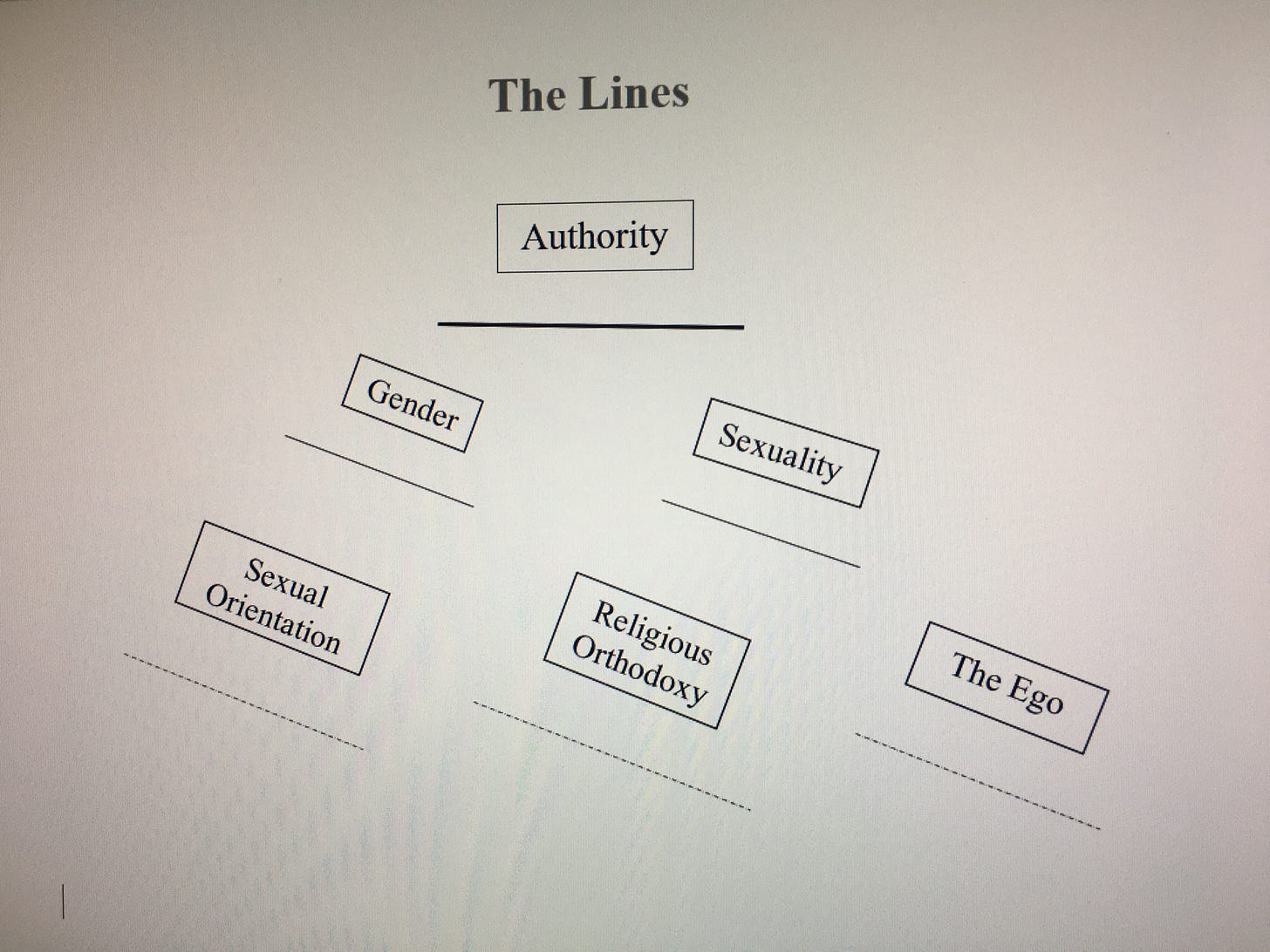The lines I refer to in my Introduction can obviously be a metaphor for many things. I’m thinking of them mainly as societal standards, cultural norms, religious orthodoxy, and familial expectations.
As an overall theme, I’m using the term “line” for anything designed or drawn for us by others; taught to us as the truth or the way the world works; told to believe, follow, and remain within for our own good.
A simple example is that of the medieval belief that the world was flat further informing and impacting people’s behavior at that time. Or a statement such as, “Don’t cross that line if you know what’s good for you.”

Bias and convention are additional fitting words to describe these lines. Bias meaning prejudice or one-sidedness in favor or against one thing, person, or group compared with another. Convention being defined as that which is generally held to be acceptable, but often at the expense of individuality and sincerity.
In my experience, some lines are bold and obvious. Others may be thin and subtle. And some are invisible and almost impossible to see, until they’re not. And all can overlap and merge one into another creating the context of our lives.
—"Games People Play" feels like a fitting song to share in this post. It was written and composed by American singer-songwriter Joe South, released in August 1968. It won the 1970 Grammy Awards for both Best Contemporary Song and Song of the Year.
*Thanks for reading and/or listening. Continue to next post Bold Lines: Authority. To read from the beginning please go to Why I'm Writing posted in the Archive.
I love receiving your comments if you’d like to share publicly or just email me directly.




I loved the analogy you made here about bias being like a line which we need to cross. I have been thinking about the line of "authority" a lot lately and how the word is sometimes used to marginalize so many who hold wisdom and insight but might not be on the dominant side of the line. What does critical thinking look like that can embrace diverse "authority of voice" but also protect against conspiracy thinking? I am specifically exploring this in the conversation about scientific knowledge and traditional indigenous knowledge. But it likely applies to other topics as well.